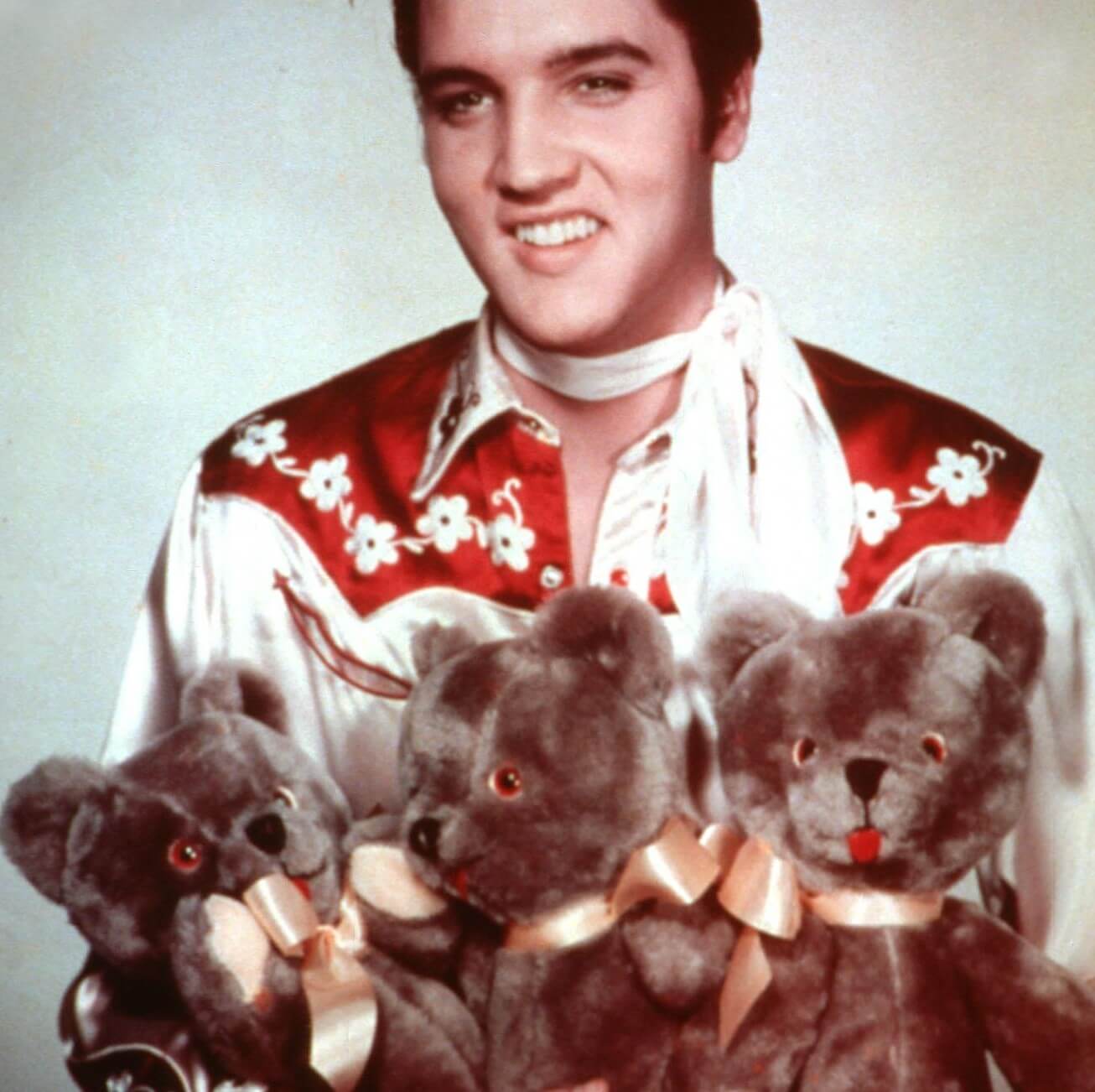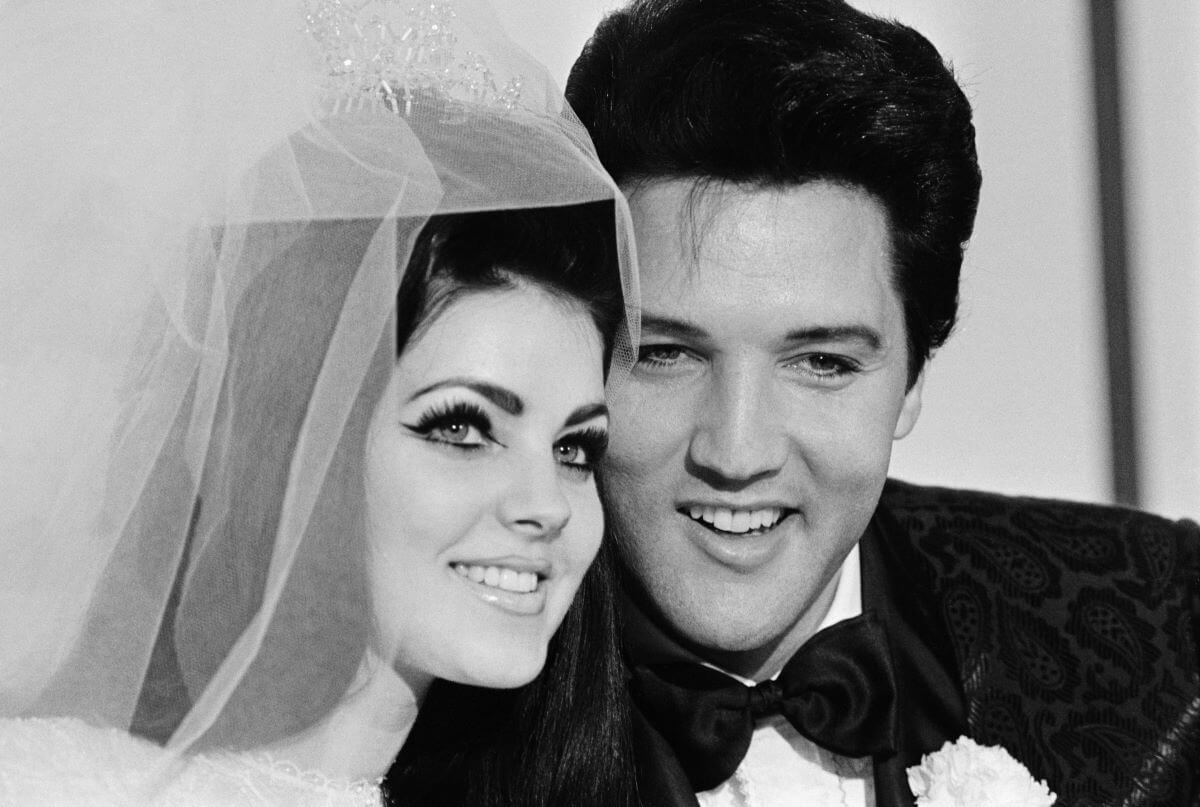
Elvis’ ‘(Let Me Be Your) Teddy Bear’ Is Deceptively Scandalous
Elvis Presley‘s “(Let Me Be Your) Teddy Bear” sounds like another 1950s doo-wop song. With its focus on teddy bears, it seems like it should be a children’s song. Despite that, it’s more suggestive than most 1950s hits. Some of the lyrical choices in the song are pretty questionable.
Elvis Presley’s ‘(Let Me Be Your) Teddy Bear’ isn’t for kids
Plenty of great rock songs are children’s songs, including The Beatles’ “Yellow Submarine,” Peter, Paul and Mary’s “Puff, the Magic Dragon,” and basically everything by The Monkees. Elvis’ “(Let Me Be Your) Teddy Bear” is anything but that. It’s a song where Elvis asks his lover to touch him like she’s touching a teddy bear. How this didn’t upset the censors at the time is beyond me.
Furthermore, Elvis asks his lover to put a chain around his neck and lead him around. Sounds a little … unusual! Apparently, Elvis was singing about S&M long before Madonna and Rihanna got to it.
Why ‘(Let Me Be Your) Teddy Bear’ feels a little twisted today
The weirdest part of “(Let Me Be Your) Teddy Bear” is it blurs the lines between the adult and the juvenile. Teddy bears are irrelevant to most people over 5 years old, yet Elvis incorporated them into a pretty racy love song. In the modern era, this choice feels twisted. It’s like a barber shop version of a Melanie Martinez song from her Cry Baby era.
Despite that, most fans are not going to look at the song in such a harsh light. To the average Elvis fan, the song is just another shameless display of the singer’s sex appeal combined with a cutesy lyrical gimmick and a fun beat. And really, who can argue with that? Regardless, it’s been overshadowed by Elvis’ more conventional doo-wop tunes, such as “Don’t Be Cruel” and “All Shook Up.”
Priscilla Presley reflected on Elvis Presley’s sex appeal
Of course, Elvis’ sex appeal was part of his image from the beginning. In her 1985 book Elvis and Me, Priscilla Presley recalled seeing the King of Rock ‘n’ Roll perform on television. “He was sexy and handsome, with his deep brooding eyes, pouty lips, and crooked smile,” she wrote. “He strutted out to the microphone, spread his legs, leaned back, and strummed his guitar. Then he began singing with such confidence, moving his body with unbridled sexuality. Despite myself, I was attracted.”
Of course, this sensuality was not without controversies. “Some members of his adult audience were less enthusiastic,” Priscilla recalled. “Soon, his performances were labeled obscene. My mother stated emphatically that he was ‘a bad influence for teenage girls. He arouses things in them that shouldn’t be aroused. If there’s ever a mothers’ march against Elvis Presley, I’ll be the first in line.'” The irony here is obvious.
Priscilla felt that Elvis’ dangerous image wasn’t the full picture. “I’d heard that despite all of his stage antics and lustful, tough-guy looks, Elvis came from a strict Southern Christian background,” she added. “He was a country boy who didn’t smoke or drink, who loved and honored his parents, and who addressed all adults as ‘sir’ or ‘ma’am.'”
“(Let Me Be Your) Teddy Bear” is a deceptively dirty song from a man Priscilla felt was deceptively innocent.



